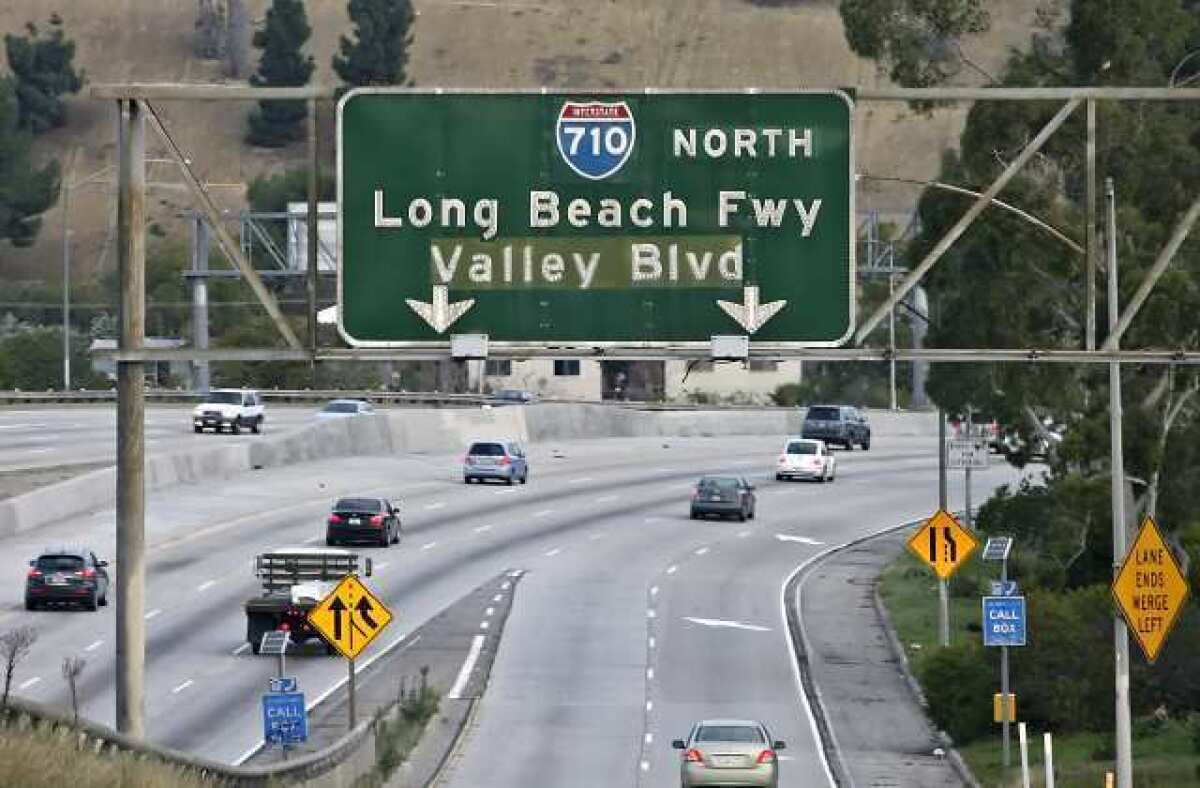Measure J support has a twist

Local lawmakers want to see voters approve Measure J on Nov. 6 and commit more funds for regional transportation projects, but they are making sure transportation officials know they don’t want money to flow toward a proposed extension of the Long Beach (710) Freeway.
In recent weeks La Cañada Flintridge, South Pasadena and Glendale have passed resolutions supporting Measure J, a Los Angeles County proposition that would extend until 2069 an existing half-cent increase in the county sales tax to pay for transit projects and roadwork. But the resolutions all warn against funding the unpopular proposal to connect the 710, which now ends in Alhambra, to the Foothill (210) Freeway in Pasadena.
The La Cañada Flintridge City Council voted unanimously on Oct. 15 to support Measure J. The resolution states that the measure would benefit La Cañada by funding the city’s 210 sound-wall project, but also because it “would accelerate multiple worthwhile public transportation projects” around the county.
The resolution also states that the city’s endorsement of Measure J is in no way an endorsement of the plan to extend the 710. Measure J doesn’t earmark any funds specifically for the 710 extension.
A week after La Cañada passed its resolution, the Glendale City Council voted to support La Cañada’s position.
Ara Najarian, Glendale city councilman and a member of the Los Angeles County Metropolitan Transportation Authority board, noted that 15% of Measure J money is slated for local communities to spend as they prefer. That makes sense for the foothills, he said.
“We don’t have the big sexy projects like the subway to the sea, but we do have some money that would come our way that the cities would welcome,” he said.
Measure J revenues will be used in the same seven categories as Measure R funds approved by voters in 2009: Rail and rapid transit expansion, rail operations, highway improvements, bus operations, Metrolink capital, Metro Rail capital and local improvements. The major beneficiaries are rail, rapid transit, highway improvements and bus operations.
The MTA claims that Measure J will allow workers to complete projects including the Gold Line eastside extension years ahead of schedule.
The South Pasadena City Council voted 5 to 0 to support Measure J because it would boost light rail and rapid transit projects, according to City Manager Sergio Gonzalez. The city’s resolution is very clear that support for Measure J does not reflect any change to the city’s opposition to the 710 extension, he said.
For the opponents of the 710 plan, Measure J presents a conundrum. Jan SooHoo of the No 710 Action Committee said it is a mixed bag.
“The transit side of the measure is a desirable end result,” she said. “We’re not happy about having highway elements to the measure.”
Strong opposition to Measure J has come from L.A. County Supervisor and MTA Chairman Mike Antonovich, who voted against placing it on the ballot.
Between Measure R and Measure J, voters are being asked to increase the sales tax for the next 57 years, he noted, but even so the money would not connect rail directly to airports in the region.
“It is discriminatory against the cities of Pasadena, Burbank and Glendale, who own the Bob Hope Airport, and the hundreds of thousands of passengers who use it,” he said.
Follow Daniel on Google+ and on Twitter @ValleySunDan.